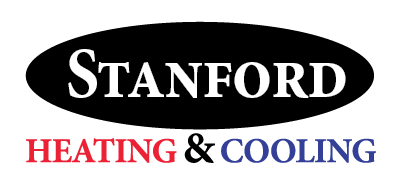Purchasing your first home is exciting. You’re probably juggling numerous details about making the right choice. We believe that understanding your future HVAC system is essential. The property’s HVAC system represents a substantial investment and source of potential long-term costs, which is why due diligence should be a top priority for first-time homebuyers.
In this guide, we’ll outline seven tips for discovering all there is to know about a home’s heating and cooling setup. And if you want a more in-depth opinion from the experts, consider calling Stanford Heating & Cooling. Our staff can weigh in on your options with industry insights you won’t find elsewhere.
1. What Type of HVAC System Is It?
Start by clarifying what kind of HVAC system the home includes. Furnaces tend to last longer than air conditioners, and relatively new types of HVAC products like heat pumps boast average life spans longer than ever. Tracking down the make and specific model ensures you have a clear understanding of how much maintenance it will require.
2. How Old Is the Current HVAC System?
It also helps to learn how old the HVAC system is when you’re considering a new home. In general, HVAC systems tend to run for about 10-12 years. Having the knowledge of when it was installed helps you anticipate future maintenance needs or when it might break down. Older systems may be more vulnerable to problems, so planning ahead of time for a replacement unit could be necessary sooner than you thought.
3. Does the System Have a Warranty?
Check if the HVAC system is still under warranty. If it is, that’s great news because it can lower maintenance expenses. HVAC warranties should take care of parts and labor, but it’s important to note that details will vary. Make sure you go over any terms that aren’t familiar to make sure you fully understand your coverage and any possible out-of-pocket costs.
4. Does the System Have a Documented Maintenance History?
Don’t forget to check the maintenance history of the HVAC system, if that information is accessible. This service history can reveal if there have been regular problems or how much upkeep was provided. Inquire about key tasks such as changing the air filter, which means it enjoyed more regularly scheduled tune-ups.
5. What Are the Energy Efficiency Ratings?
Selecting a system with great energy efficiency isn’t just smart; it leads to more manageable utility bills and less of an impact on the environment. Look for the seasonal energy efficiency ratio (SEER) ratings for air conditioning as well as the annual fuel utilization efficiency (AFUE) for furnaces. Higher SEER ratings mean better cooling across the entire season, while strong AFUE ratings indicate that the fuel is more effectively burned for useable heat.
6. Can You Spot Trouble After Your Own Inspection?
Even if you don’t have experience in HVAC systems, you can still take a moment to examine the HVAC system yourself. Look for signs of problems that might have been overlooked. This can mean bizarre noises, unequal airflow and attempts to hide any visible damage.
7. Have You Sought Out Expert Advice?
If you’re not quite sure about the overall state of the HVAC system, it’s beneficial to get an assessment and recommendation from trained HVAC professionals. They can spot things you might miss, such as refrigerant leaks, damage to the wiring or flawed ductwork.
A Call with Stanford Heating & Cooling Simplifies Your Home-Buying Journey
Finding your first home should be thrilling, and Stanford Heating & Cooling wants to ensure it stays that way. Get in touch with us at 812-825-8695. We can go over the details about how our HVAC services give you peace of mind, giving you what you need to make an offer with confidence.

